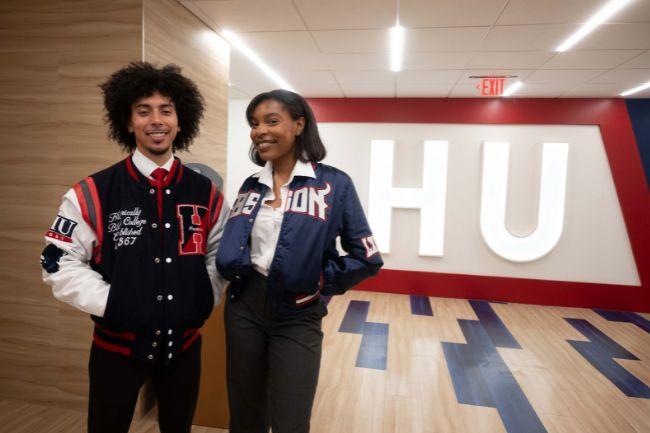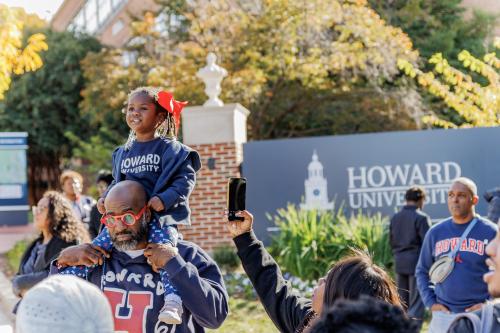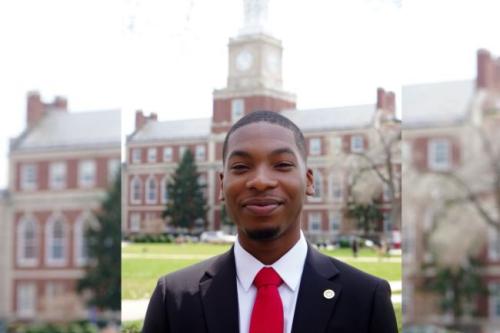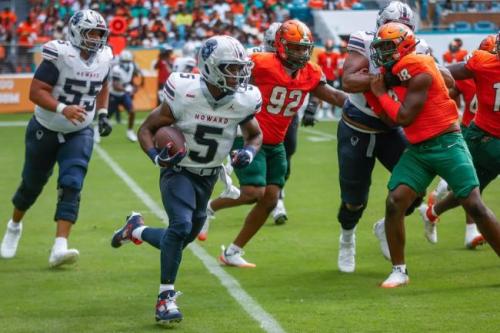“I don’t believe being in student government or having a position is what gives you power. I think access more than anything gives you power,” said Howard University Student Association (HUSA) President Naesoj Ware, the 65th student to hold the office.
“That’s how I approach every situation of leadership — figuring out how I can gain more access to the people who actually have the power to change the things that students are looking to be changed,” she continued. “But most importantly, making sure that they know they always have access to me and Payton, which gives them in turn the same exact power that Payton and I have.”
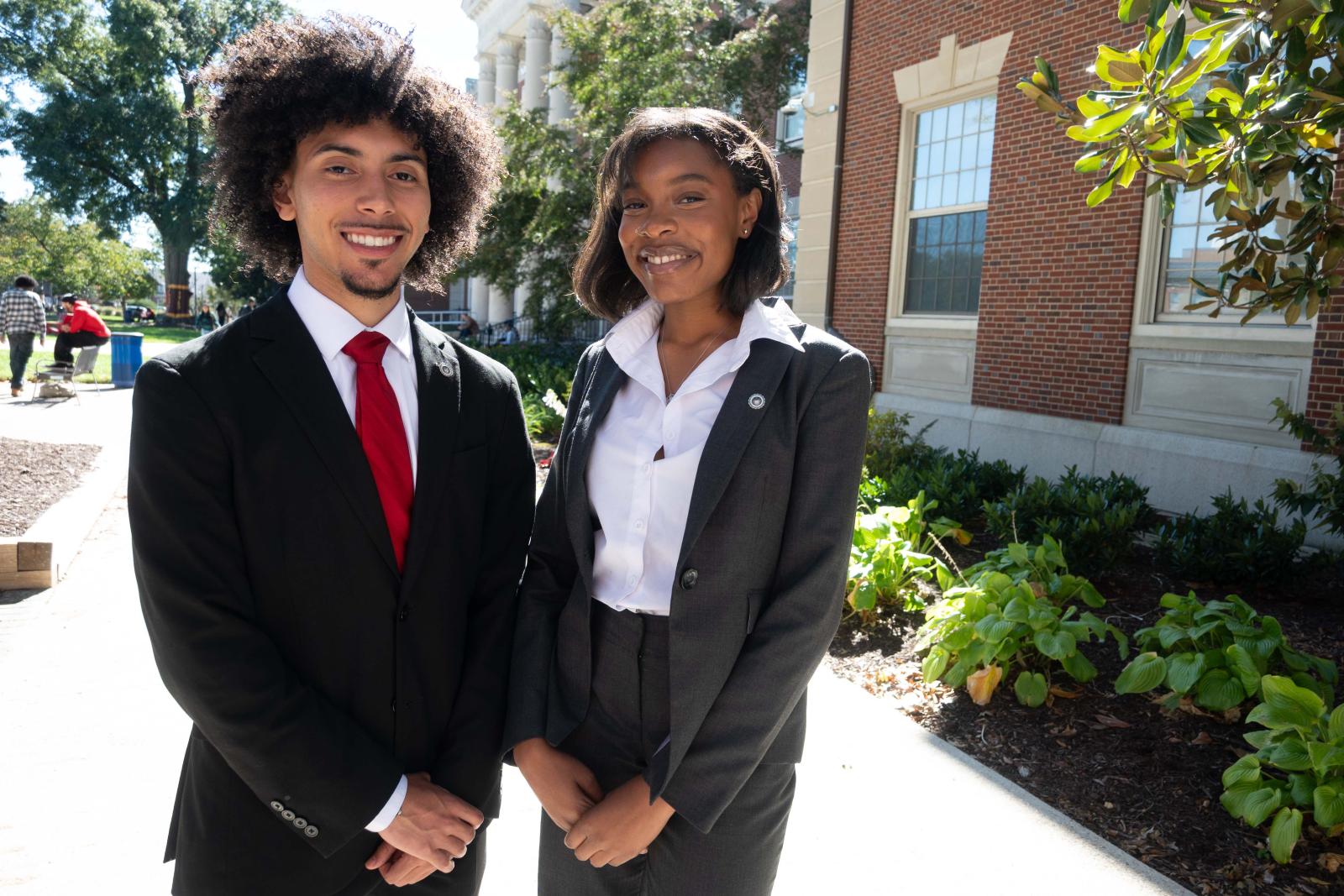
When asked what he wanted the student body to know about him, HUSA Vice President Payton Garcia offered similar sentiments.
“Above all else, I believe that despite the fact that my role is to represent and amplify their voice to the administration in ways that both have to be progressive but also in other aspects traditional, and in every capacity I want them to know that they themselves are the sole reason why the university changes, not me as vice president being in the room with Dr. Frederick,” said Garcia. “It genuinely is the culture of Howard that motivates it to grow and prosper. As an individual who can bring the presence of many to one, that’s the only responsibility I truly bear — to ensure that the guarantees you are seeking can be met in a sustainable way that won’t just impact you, but also every other student that has yet to have the opportunity to think of something that you’ve already brought to my attention.”
The Howard University Student Association Goes “Beyond”
Established in 1961, HUSA is the “eyes, ears, and voice for the student body,” with elected student leaders acting as advocates for their classmates — having a seat at the table and access to the rooms where decisions regarding their education, accommodations, and overall life on campus are decided. The association is made up of the student body, a legislative “HUSA Senate” branch with undergraduate and graduate representatives, two programming bodies — the Undergraduate Student Assembly (UGSA) and the Graduate Student Assembly (GSA) — and a judicial branch, in addition to the executive branch which includes the president, vice president, and their staff.
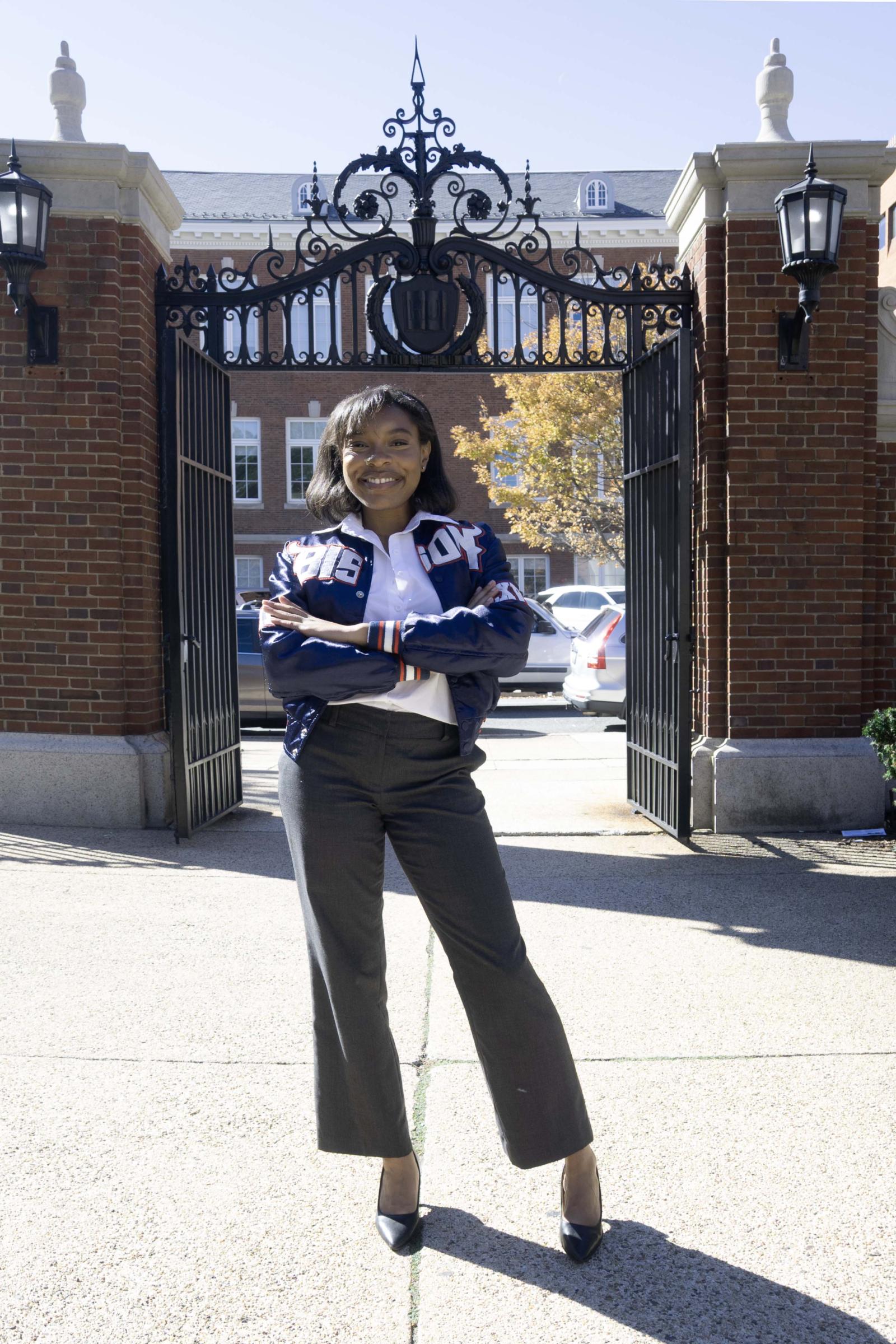
When it comes to seeking change and working within a governmental system to do so, Ware is adamant that HUSA not simply model flawed systems.
“I like to consider myself a reformist, somebody who’s always seeking to make systems better,” said Ware. “We shouldn't be modeling systems that we know don't work but instead trying to create systems that could serve as representations and models for how our world could be serving us better.”
One way the current student administration is working to better serve the study body is through its “HUSA Beyond” initiative, which was also the name of Ware and Garcia’s campaign, where they reminded their fellow Bison that “nothing is BEYOND your reach.”
“The overall point of Beyond is really just to get students access while also connecting students’ lived experiences with the administration,” explained Ware. An example of that connection is a recent discussion between student and university leaders where student concerns were openly discussed.
“We just had our HU Surrounded event, where we put administrators in the circle and students were able to ask questions,” explained Ware, noting that at first the idea for the event was a simple panel and luncheon with the administration. “We literally worked with our sub lead to enhance that program and saw so much fruit from that. It really just looks like enhancing ideas whenever you have the possibility to.”
Inspiration to Serve and Advice for Others
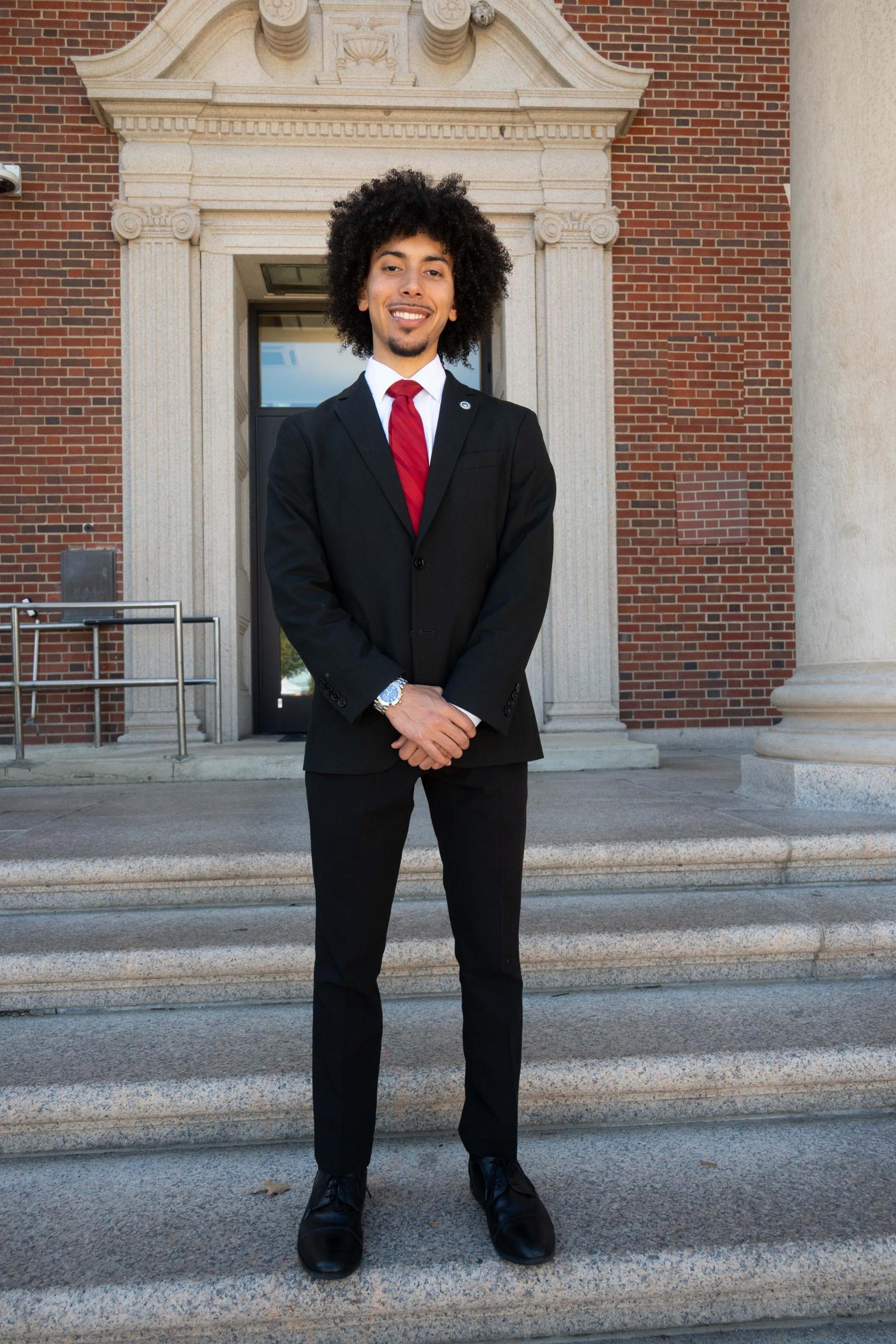
Garcia’s motivation to serve and help usher in needed change is simple: the admirable people he met when he first stepped foot on The Yard.
“The first five to 10 upperclassmen that I met on The Yard and in the dining hall on my first Soul Food Thursday offered me the opportunity to engage with them and learn more about who they are,” he said, stating that they embodied certain aspects of the university he didn’t know existed as a former boarding school student who wasn’t well-versed in HBCUs before coming to Howard. “People were really the motivators for me.”
Admitting that he hadn’t previously planned to take on such responsibilities or believed he could bear the weight of holding his current position, Garcia soon found himself seeking out ways to repay the generosity those initial students, and Howard as a whole, showed him.
“I’m a Humanities and Social Sciences Scholar; I’m here on practically a full ride. No other university ever gave me that chance when I was applying to colleges,” he said, going on to note that his mentor, Jay Jones, the 64th HUSA president, advised him of the thanklessness of the role. “It’s a very thankless job, and that’s what it should be like. Nobody should be patting you on the back for doing what you do. I don’t think you should be patting yourself on the back either.”
“There are people that come from backgrounds that don’t provide them with privileges that I have,” he continued. “I think at that point, it’s a duty and obligation for anyone who has more time on their hands to at least figure out how to utilize it in order to uplift those who will need more time eventually in the future. So that first blessing that I got at Howard and individuals like Jay Jones are really the reason that I believed I could even do it in the first place.”
Ware also feels that she and all HU students have a responsibility to honor the legacy of the university.
“I feel very blessed and lucky to be able to experience a campus and a legacy that I didn’t myself create,” said Ware. “Howard is so great because of the people who have made it great for us, and the people who have gone on to do even greater things that even allows us to claim a legacy such as Howard University. I think that every student that touches our campus has a responsibility to carry on, maintain, and grow that legacy, so that students who we don’t know yet in 20, 30 years will be able to claim it as well.”
Ware understands that not all students feel a calling to serve; but believes that Bison do in fact have a charge to “give Howard back to somebody else.”
“I think that’s what we do in these roles — we give Howard back to the students who really dreamed of coming here and the students who do everything that they can to stay here,” said Ware. “That’s really my biggest motivator, to be the voice for somebody who is here because they truly love this school and truly love the legacy that it comes with.”
For those interested in serving, Ware suggest students first figure out their “why,” and think about their answer in the same way they likely pondered their personal statement for admittance.
“I think many people come into it thinking, ‘I want to change Howard,’ but it’s never in a unique why. And I think it’s almost like a personal statement — nobody should be able to take your personal statement, put their name on it, and it not be clear that it actually came from you,” she said. “Have an individual why, have a unique why, and then even more than that have an action plan. I don’t think that it’s necessary to know exactly how you’re going to get everything done, but I think it is important to have a plan behind the ideas that you have, because it’s almost like what they say in the Bible — faith without works is dead.”
“I think that’s what we do in these roles — we give Howard back to the students who really dreamed of coming here and the students who do everything that they can to stay here.”
-HUSA President Naesoj Ware
Another aspect of student government service that those wishing to serve should be aware of involves learning how to balance the needs and wants of the student body with actually getting things done within the university system.
“Trying to figure out how you serve as the middle ground between the students and the administration [is important], because you need to be good enough with the students that [they know] you’re doing the job they elected you to do, but then also cool enough with the administration that you can actually progress any agenda forward,” said Ware. “Because if administration doesn’t trust you, you can’t get nothing done, and if the students don’t trust you, you’re not the greatest leader.”
“At some point you have to realize that your ideas, your passion, your radical legalism is not bigger than the message or bigger than the program,” she continued. “And without a little bit of compromise, without a little bit of negotiation, nothing gets done.”
That said, the president advises interested students to “just go for it.”
“The people who you don’t think will agree with you probably will; it’ll probably be more people that feel the same way you do and want to say the same that you’re saying, but don’t have the courage to,” said Ware. “And that’s ultimately why they need you in those spaces, whatever space that may be.”
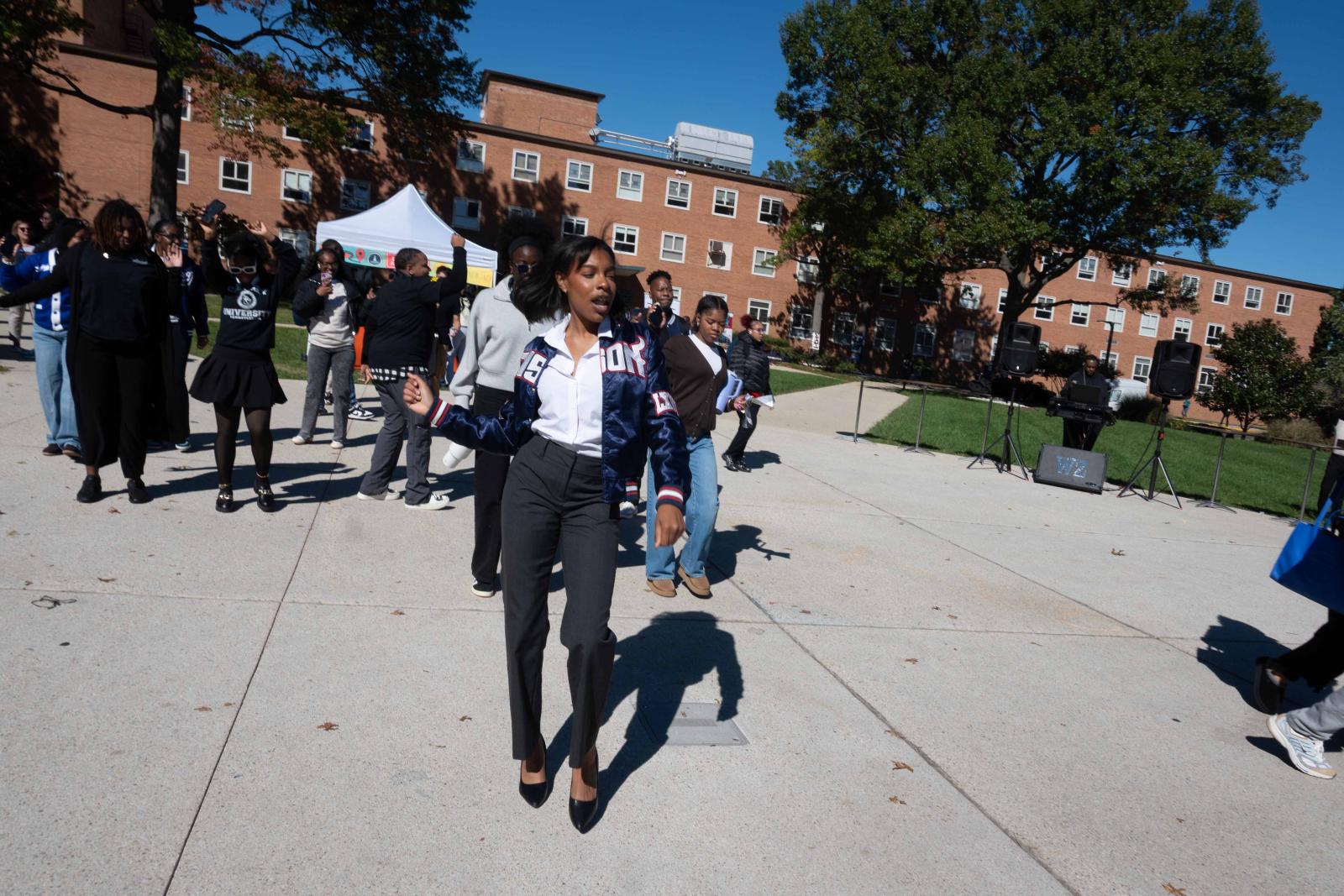
Howard’s “One of One” Homecoming
Unfamiliar with the culture of homecoming before becoming a student at Howard, Garcia always found its traditions, happenings, and associated themes to be special. However, he finds this year’s “One of One” theme to be particularly fitting, as it illuminates the Howard’s position as the “flagship of all HBCUs.”
“Not in the sense that it was the first, but in the sense that it is the first to lead, the first to be called on, and the first to be highlighted across all platforms,” explained Garcia.
“When people think of HBCUs, I truly believe they think of Howard first, and if ‘One of One’ can encapsulate that and launchpad us into another stratosphere, that’s the purpose of it serving as Homecoming theme.”
Garcia went on to note that he hopes future homecoming themes will similarly be positioned as what he called the “proper promotional material for the whole world” to see what it looks like for “Black success to be maintained within a singular space for over 100 years.”
For Ware, the theme illuminates the fact that, despite any outside perceptions of flaws, the university has more than earned its “Mecca” title.
“Howard continues to be the beacon of excellence and hope and inspiration that people continue to look toward, and that’s not for no reason,” she said, going on to discuss the thinking behind the theme. “So, when we thought of that, it was like, ‘how do we bring people back to the basics? … How do we remind them who Howard really is, despite all of our flaws?’”
“If there is one box on the paper, Howard checks that box every time. And it’s because of the hope that you can’t deny when people walk our yard, the legacy that you can’t deny that comes from this campus, the generational success that you can’t deny; the diversity that you can’t deny,” continued Ware, who was inspired by something Howard President Emeritus and Interim President Wayne A. I. Frederick, M.D., MBA (B.S. ’92, M.D. ’94, MBA ’11) recently said.
“He said we’re not trying to be the largest HBCU, we’re trying to be the best, and not in an elite way, but in a way that really feels like whether you went here or not, you’ll be able to say Howard gave something to you,” said Ware. “I think that’s what it means to be ‘One of One’— to know that you’re constantly giving back to a world and to people who have never even experienced the culture of Howard University. I think that’s a beautiful thing. That's what ‘One of One’ means.”
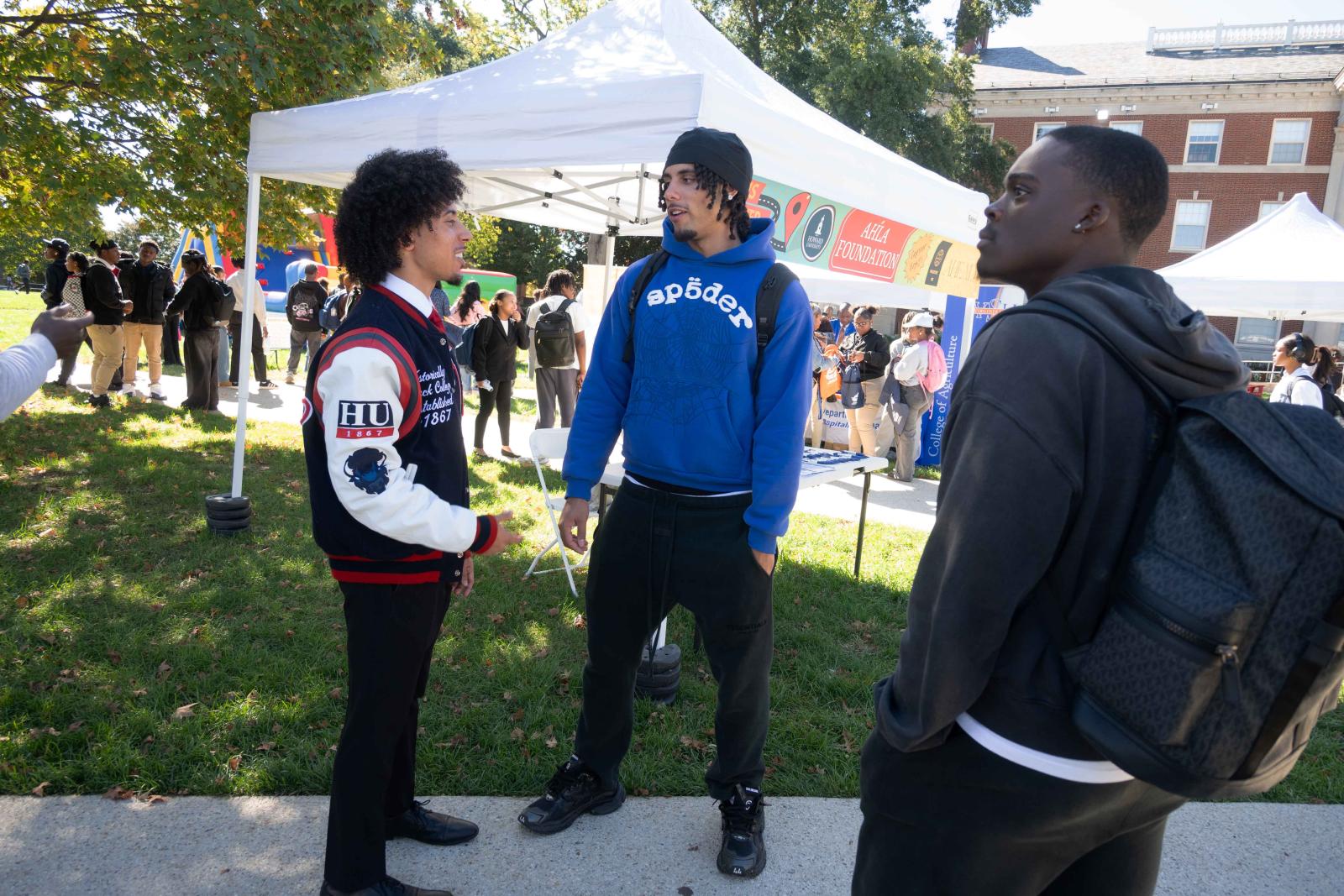
A Legacy of Leadership and Service
“When I think about why I chose to lead, it was really just a motivation to be that person saying the things we’re all thinking out loud, and then even more than that, to be everybody’s safe space,” explained Ware. “Payton and I often joke that I try to be everybody’s safe space and No. 1 fan. I think that’s what leadership at Howard should feel like all the time — that if nobody sees you, your leader does.”
HUSA’s president and vice president are committed to making sure students feel seen, and to increasing connection and access between the student body and university leaders. In doing so, they believe they will achieve what they set out to accomplish on the campaign trail — that by working together, Howard students and administrators can go beyond and achieve more.
“What I really want to leave with, once the 65th administration is over, is the notion that not just the students but the administration most importantly knows that they can do more. They can do so much more; they don’t have to hesitate — they can take risks on the students’ behalf that will benefit them,” said Garcia.
Ware hopes that when they leave office, students truly feel like they have a better understanding of who the leaders that make up the administration are, and what they do.
“We don’t feel like student government is an exclusive space,” she said. “If we can leave and students are caring about the everyday decisions that are being made and affecting them, I would say that ‘Beyond’ did its job.”
All photos by Cedric Mobley.


